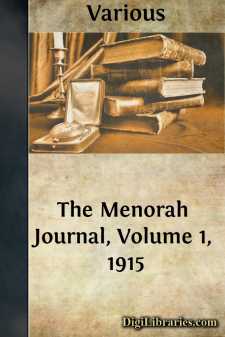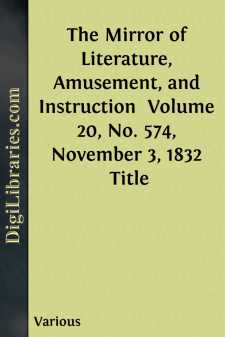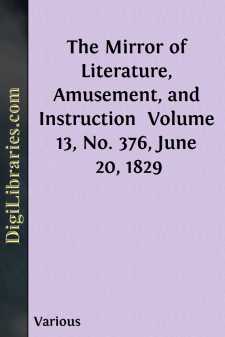Categories
- Antiques & Collectibles 13
- Architecture 36
- Art 48
- Bibles 22
- Biography & Autobiography 815
- Body, Mind & Spirit 144
- Business & Economics 28
- Children's Books 18
- Children's Fiction 14
- Computers 4
- Cooking 94
- Crafts & Hobbies 4
- Drama 346
- Education 58
- Family & Relationships 59
- Fiction 11833
- Games 19
- Gardening 17
- Health & Fitness 34
- History 1378
- House & Home 1
- Humor 147
- Juvenile Fiction 1873
- Juvenile Nonfiction 202
- Language Arts & Disciplines 89
- Law 16
- Literary Collections 686
- Literary Criticism 179
- Mathematics 13
- Medical 41
- Music 40
- Nature 179
- Non-Classifiable 1768
- Performing Arts 7
- Periodicals 1453
- Philosophy 65
- Photography 2
- Poetry 896
- Political Science 203
- Psychology 44
- Reference 154
- Religion 515
- Science 126
- Self-Help 85
- Social Science 82
- Sports & Recreation 34
- Study Aids 3
- Technology & Engineering 59
- Transportation 23
- Travel 463
- True Crime 29
Our website is made possible by displaying online advertisements to our visitors.
Please consider supporting us by disabling your ad blocker.
The Menorah Journal, Volume 1, 1915
by: Various
Categories:
Description:
Excerpt
The Menorah
By Theodor Herzl
Translated from the German by Bessie London PouzznerDEEP in his soul he began to feel the need of being a Jew. His circumstances were not unsatisfactory; he enjoyed an ample income and a profession that permitted him to do whatever his heart desired. For he was an artist. His Jewish origin and the faith of his fathers had long since ceased to trouble him, when suddenly the old hatred came to the surface again in a new mob-cry. With many others he believed that this flood would shortly subside. But there was no change for the better; in fact, things went from bad to worse; and every blow, even though not aimed directly at him, struck him with fresh pain, till little by little his soul became one bleeding wound. These sorrows, buried deep in his heart and silenced there, evoked thoughts of their origin and of his Judaism, and now he did something he could not perhaps have done in the old days because he was then so alien to it—he began to love this Judaism with an intense fervor. Although in his own eyes he could not, at first, clearly justify this new yearning, it became so powerful at length that it crystallized from vague emotions into a definite idea which he must needs express. It was the conviction that there was only one solution for thisJudennot—the return to Judaism.When this came to the knowledge of his closest friends, similarly situated though they were, they shook their heads gravely and even feared for his reason. For how could that be a remedy which merely sharpened and intensified the evil? It seemed to him, on the other hand, that their moral distress was so acute because the Jew of to-day had lost the poise which was his father's very being. They ridiculed him for this when his back was turned—many even laughed openly in his face; yet he did not allow himself to be misled by the banalities of these people whose acuteness of judgment had never before inspired his respect, and he bore their witticisms and their sneers with equal indifference. And since, in all other respects, he acted like a man in his senses, they suffered him gradually to indulge in his infatuation, which a number of them soon began to call by a harsher term than idée fixe.
He continued, however, with characteristic persistence to develop one idea after another from his fundamental conviction. At this time he was profoundly moved by several instances of apostasy, though his pride would not permit him to betray it. As a man and as an artist of the modern school, he had, of course, acquired many non-Jewish habits and his study of the cultures of successive civilizations had left an indelible impress upon him. How was this to be reconciled with his return to Judaism? Often doubts assailed him as to the soundness of his guiding thought, his "idée maîtresse," as a French thinker calls it. Perhaps this generation, having grown up under the influence of alien cultures, was no longer capable of that return which he had perceived to be their redemption....












